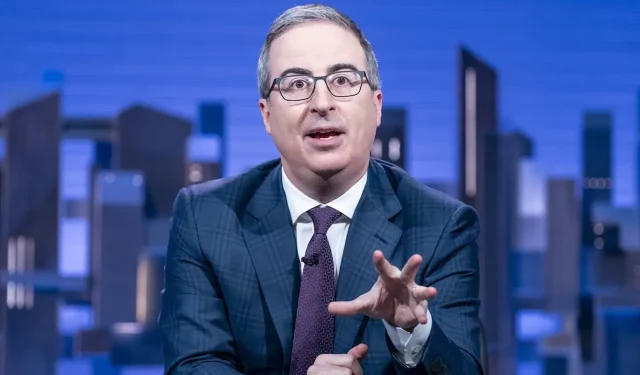John Oliver’s Sharp Commentary on Mel Gibson and His Controversial Past
During the latest episode of Last Week Tonight, John Oliver took the opportunity to criticize actor Mel Gibson and his father in a humorous yet revealing manner.
Recent Controversies in the News
Oliver’s segment drew inspiration from an opinion piece authored by Liz Oyer, a U.S. pardon attorney, which was published in Rolling Stone. In her article, she speculated on the circumstances surrounding her termination from the Justice Department.
Oyer stated, “No one has told me why I was fired. But the notice was delivered hours after I declined to recommend reinstating the gun rights of a famous friend of the president, the actor Mel Gibson, who has a history of violence against women.” This statement sheds light on both her professional integrity and the political landscape of the current administration.
Oliver’s Analysis
In a clip from an interview with CNN, Oyer recounted a moment of foreshadowing: “When I came into work on Friday morning, I said to a colleague, I really think that Mel Gibson might be my downfall, and within hours of saying that, I was being escorted out of my office.” This striking prediction was met with disbelief by Oliver, who commented, “Wow, that is, frankly, incredible. She got fired because she didn’t think Mel Gibson, best known for his work in screaming, should have guns.”
Unearthing Disturbing Legacies
Oliver encouraged his audience to revisit Gibson’s Wikipedia page for a refresher on his various scandals. Additionally, he highlighted the elder Gibson’s page, claiming that the introductory paragraph was remarkably eye-opening. He quoted:
“Hutton Peter Gibson was an American conspiracy theorist, Holocaust denier, writer on sedevacantism — the belief that there hasn’t been a valid pope since 1958 — a World War II veteran, the Jeopardy! grand champion for 1968, and the father of 11 children, one of whom is the actor and director Mel Gibson.”
Oliver concluded his analysis by stating, “That is a fascinating man. And imagine having so many terrible views that producing Mel Gibson is not the worst thing about you.” This reflection underlines the complexities and controversies surrounding both Gibsons, emphasizing the impact of their actions and beliefs on public perception.
For further insights into this topic and to catch up on Oliver’s witty examination, you can check out the full segment here.


